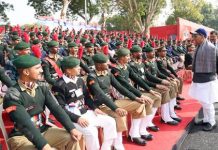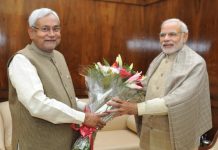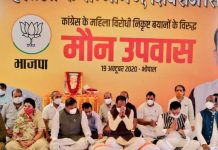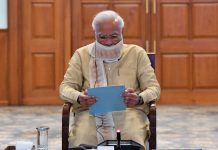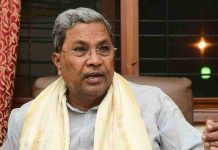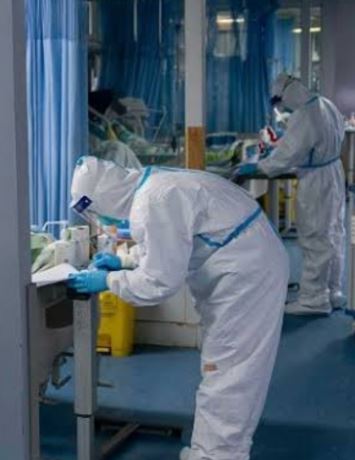 The total number of samples tested for coronavirus in the past 24 hours is 1,15,364. A total of 28,34,798 samples have been tested so far, Indian Council of Medical Research (ICMR)said on Saturday.
The total number of samples tested for coronavirus in the past 24 hours is 1,15,364. A total of 28,34,798 samples have been tested so far, Indian Council of Medical Research (ICMR)said on Saturday.
Over 1.25 lakh people have been infected from coronavirus in the country. India’s COVID-19 tally reaches 125,101 on Saturday. There are 69,597 active cases while 51,783 have been recovered from the deadly contagion. The death toll in the country stands at 3,720, according to Health Ministry website.
The country today reported another highest single-day spike with 6,654 new COVID-19 cases in the last 24 hours.
Globally COVID-19 cases have surpassed the 5 million-mark with over 3.4 lakh fatalities.
The United States is the worst-hit country, followed by Brazil, Russia, Spain, UK, Italy, France and Germany.
A revised Indian government advisory has recommended use of hydroxychloroquine as a preventive medication for asymptomatic healthcare workers working in non-COVID-19 hospitals, frontline workers on surveillance duty in containment zones and paramilitary/police personnel involved in COVID-19 related activities, ICMR said in a statement.
The drug is contraindicated in persons with known case of-Retinopathy, Hypersensitivity to HCQ or 4-aminoquinoline compounds. G6PD deficiency and Pre-existing cardiomyopathy and cardiac rhythm disorders, it said.
The drug is not recommended for prophylaxis in children under 15 years of age and in pregnancy and lactation, the statement said.
The recommendation was made after the Joint Monitoring Group under the Chairmanship of Directorate General of Health Services (DGHS) and including representatives from AIIMS, ICMR, National Centre for Disease Control (NCDC), National Disaster Management Authority (NDMA), WHO and experts drawn from central government hospitals reviewed the prophylactic use of hydroxychloroquine (HCQ) in the context of expanding it to healthcare and other frontline workers deployed in non-COVID-19 and COVID-19 areas, respectively.
Rarely the drug causes cardiovascular side effects such as cardiomyopathy and rhythm (heart rate) disorders, it said.
“In that situation the drug needs to be discontinued. The drug can rarely cause visual disturbance including blurring of vision which is usually self- limiting and improves on discontinuation of the drug. The drug has to be given under strict medical supervision with an informed consent,” it added.
Key considerations:
- The drug has to be given under strict medical supervision with an informed consent.
- The drug has to be given only on the prescription of a registered medical practitioner.
- Advised to consult with a physician for any adverse event or potential drug interaction before initiation of medication. The contraindications mentioned in the recommendations should strictly be followed.
- Health care workers and other frontline workers on HCQ should be advised to use PPE. Front line workers should use PPEs in accordance with the guidelines issued by this Ministry.
- They should be advised to consult their physician (within their hospital/surveillance team/security organization) for any adverse event or potential drug interaction before initiation of medication. The prophylactic use of HCQ to be coupled with the pharmacovigilance for adverse drug reactions through self-reporting using the Pharmacovigilance Program of India (PvPI) helpline/app
- If anyone becomes symptomatic while on prophylaxis, he/she should immediately contact the health facility, get tested as per national guidelines and follow the standard treatment protocol. Apart from the symptoms of COVID-19 (fever, cough, breathing difficulty), if the person on chemoprophylaxis develops any other symptoms, he should immediately seek medical treatment from the prescribing medical practitioner.
- All asymptomatic contacts of laboratory confirmed cases should remain in home quarantine as per the National guidelines, even if they are on prophylactic therapy.


